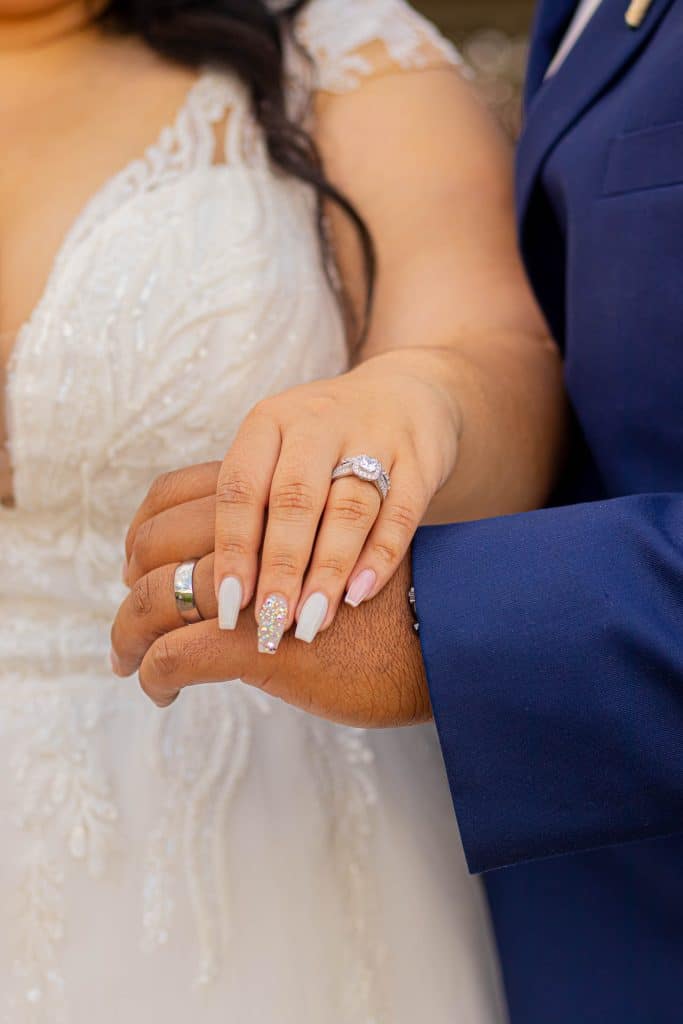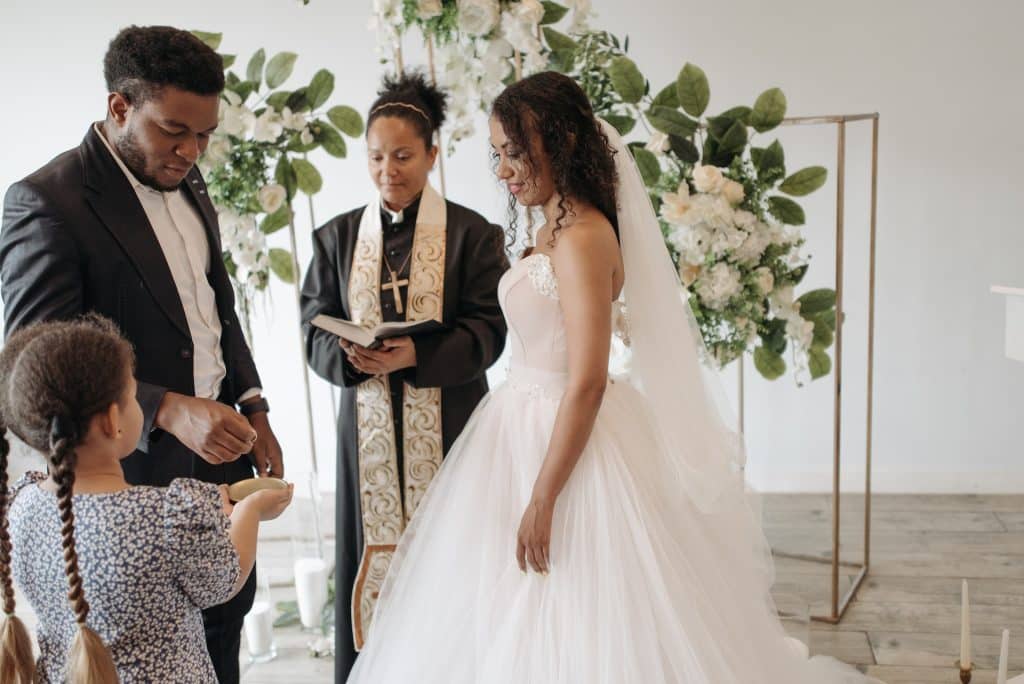
A common trope in TV shows and movies is that weddings never go quite as planned. One of the parties gets cold feet, or an unexpected event makes it impossible for the wedding to happen. From Runaway Bride to Shotgun Wedding, which is set to release any day now and which stars the queen of wedding films, Jennifer Lopez, filmmakers have imagined every kind of wedding and every kind of disaster that can befall them. They’ve seen brides and grooms run off with their true loves. They’ve seen a wedding sabotaged by a runaway possum. They’ve had weddings broken by sudden outbreaks of violence. The latter is especially common in movies, but fortunately less so in real life, but the point still stands: Hollywood loves to show what happens when weddings don’t go the way they’re supposed to.
What you never see, however, is the actual financial impact such disasters can have on the couple themselves.
The reality is that a wedding is a considerable expense. Often shockingly so. And not just those vast weddings you see in movies or on trashy reality TV shows about spoilt heiresses and their filthy wealthy suitors. Even those who go for a small ceremony with only their nearest and dearest end up spending a lot of money on a simple selection of food, décor, music and the venue. Cancelling the wedding, especially at the last minute, is not just a disappointment but can also be financially disastrous.
While we all want to believe our wedding day will turn out great, there is always a risk that something will derail it. Many couples went through this in 2020, when the pandemic meant their significant events couldn’t go ahead. It is for this reason that wedding insurance exists.
But what is wedding insurance, and is it necessary?

Marriage And Insurance
While we all want to embrace the credo that love is all you need, the honest truth is that finances play a big part in all marriages. It’s true for poor couples who must come to terms with their situation and whether they can create a life together, however meagre. For wealthy couples, money issues raise their heads in shocking ways and can cause friction between couples that far eclipse the more realistic issues of poor couples. The most complicated is when you have two people from very different socio-economic backgrounds or two people of very different success levels and how they navigate the disparity in wealth and power between them. When you tie the knot with someone, you essentially agree to rely on one another in certain aspects. This happens right from the very off, so, as such, the wedding itself necessarily comes with talk of insurance.
Life insurance, for a start, should be an absolute non-negotiable when a couple is married, especially when one of the two is mainly dependent on the other. This was especially true when women depended entirely on their husbands for every last bit of financial security. However, even now, with men and women being more equal, it’s still possible for spouses to be entirely financially dependent on one another. If one partner dies, the other can be left struggling to cope financially, even if they have their own money. You and your partner need to determine how much term life insurance you need and get it sorted out. Without it, an unexpected death can be financially catastrophic.

Other types of insurance you may need to adjust include your homeowner’s or renter’s insurance. And, obviously, and most essentially, your health insurance. If you’ve been living apart with separate policies and are now moving in together, you may need to get a single policy to cover everything you own between you. It’s a good idea to do this, regardless of whether or not you’re required to, because insurance premiums for married couples can and will be much cheaper.
One of the most significant benefits you can get as a married couple in this area is that if one partner gets health insurance from their employer, they may be able to add their spouse to the policy. This can even be the case if both have jobs that provide health insurance and the spouse with far better insurance wants to put their spouse on their own insurance policy as a dependant. Ultimately, your finances are becoming entangled whether or not you’re marrying in the community of property, and insurance reflects this.
Now, let’s look at why you might consider getting wedding insurance.

What Is Wedding Insurance?
So, with all this said, what exactly is wedding insurance, and what exactly does it cover? Essentially, the primary type of wedding insurance is a policy that covers all the expenses that have gone into the day of your wedding in case of cancellation or postponement. These can include non-refundable payments for the venue and catering, bookings for photographers and bands, and renting additional equipment. These small things can add up, and even if your wedding is cancelled or postponed for reasons that have nothing to do with you, there’s a significant chance that you won’t get your money back for any of them.
This isn’t the only kind of wedding insurance out there, though. There’s a second kind that is probably just as important, and you may be obligated to take this insurance out when you rent a venue. This kind of wedding insurance that you can and should get is a kind of liability insurance that covers any injuries or damages caused to guests of your wedding on the day. Along with this liability insurance, you can also get another type of insurance for liquor liability, which covers damage in liquor-related incidents by guests – or yourself – that may occur during the wedding.
Of course, this is all about the overall wedding. You can also insure your dress, rings, tuxedo or suit, and even your gifts should you choose to have that extra peace of mind. This much insurance can add up, though. Still, fortunately enough, for some of these items, you do not specifically need insurance geared towards weddings; they will be covered in one of your other insurance policies. Indeed, you can generally get a single insurance policy covering everything involving a wedding – make sure you employ the right broker to help you get the best deal you can.

Is Wedding Insurance Worth It?
Is wedding insurance worth it, then? But, if the amount of money you’re spending on your wedding is significant in your finances, and it almost always is unless you’re almost obscenely wealthy, then yes, wedding insurance is worth it. The simple reality is that if something happens and your wedding is called off, you will lose a lot of money without it. And this can occur for several reasons, including acts of God like a sudden pandemic. Suppose you want to rearrange your wedding, and in most cases, you absolutely will. In that case, you’ll have to spend all that money all over again – and there’s a good chance that you won’t have it the next time and may need to compromise significantly to get even a tenth of the wedding of your dreams.
Weddings are simply risky events because a lot can go wrong in the months or even years between making bookings and the wedding happening. Until and even on the day itself, there are things which could force you to call off or postpone the wedding. This doesn’t need to be about a breakup but could be about everything from freak weather events like unexpected snowfall to the breakout of a worldwide pandemic. It can be because you or someone very close to you falls ill. It could also be because you have a sudden financial downturn from losing a job or having your business go bankrupt. However, important wedding insurance is in those other cases, it can be a genuine lifesaver if you’re now suddenly reliant on the money that you were going to spend on a lavish wedding party.

This level of risk does, admittedly, make wedding insurance somewhat expensive in comparison to other, more straightforward insurance policies (like laptop or mobile phone insurance), but in the grander context of the vast sums that you’re likely already spending on your dream wedding, it is still actually a relatively minor expense that can end up saving your bacon if the unfortunate happens.
In short, whether or not you wish to get wedding insurance for your big day will ultimately depend on your needs and risk appetite. Regardless of your choice, you should always have plans if a spanner is thrown in the works.













Very new content